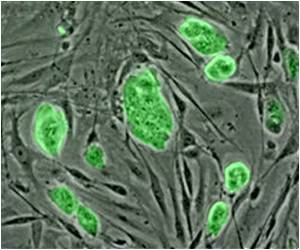To provide stem cells for transplantation procedures, the use of central nervous system fetal tissues derived from routine elective abortions aimed at restoring damage done by neurodegenerative diseases is an established therapy.

The study appears as an early e-publication for the journal Cell Transplantation, and is now freely available on-line at http://www.ingentaconnect.com/content/cog/ct/pre-prints/ct1020piroth.
"Fetal neural tissue transplantation has become a potential treatment option for patients suffering from neurodegenerative diseases such as Parkinson's disease (PD) and Huntington's disease (HD)," explained study co-author Dr. Guido Nikkah of the Department of Neurosurgery, Erlangen University Clinic, Erlangen, Germany. "However, in Europe neural transplantation of fetal tissue must be performed in accordance with guidelines on "Good Manufacturing Processes," which means that aspects of microbiological safety have to be investigated in detail."
According to the researchers, aborted fetal human tissues carry the risk of bacterial contamination from the abortion process and this is the contributing factor to the subsequent risk of infection to cell recipients. The researchers noted that prior to their study it was not clear whether fetal tissue contamination, or subsequent surgical contamination during cell transplantation normally had the greatest impact as potential contributing factors to microbial infection in hosts.
Their study revealed a wide range of microbial contamination in fetal tissues that could cause infections. 47.7 % of the fetal tissues they sampled were positive for microbial infection. They also found that the risk of bacterial infection was higher than the risk of fungal infection.
To prevent microbial infection in cell transplantation hosts, the researchers developed and tested a microbial "washing" technique. In laboratory tests using rats as transplantation hosts, the technique has been shown to eliminate microbial contamination. Based on the technique's success in decontaminating fetal tissue cells transplanted into laboratory animals, the washing technique was subsequently used in clinical practice.
Advertisement
The researchers noted that although the risk of infection is very low after their procedure, they still recommend antibiotic prophylaxis.
Advertisement
"The potentially deleterious impact of microbial contamination on the use of cells or tissues for transplantation is an important health factor that cannot be ignored." said Dr. Shinn-Zong Lin, professor of Neurosurgery and superintendent at the China Medical University Hospital, Beigang, Taiwan. "Procedures to reduce the likelihood of contamination such as that described within this paper are therefore of great importance."
Source-Eurekalert









